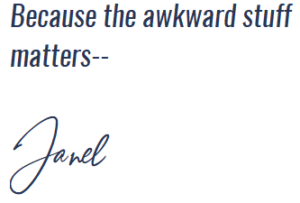
My 16-year-old was recently awarded his driver’s permit–okay, yikes–and with it, was pre-registered to vote. We don’t fall down the line politically, which I’m generally okay with. (You may remember we’re a lot different: see When Your Child is Different from What You Expected.)
As my kids grow older…so do their opinions. Sometimes I’m unprepared for the ways my boys and I don’t see eye-to-eye.
But I’m actually more concerned about statistics I’m reading: A shocking 22% of evangelicals believe civility is unproductive in political conversations. Twenty-five percent consider their candidate’s insulting personal remarks toward an opponent to be justifiable.
(Friends, how did we get here?)
It’s one thing to steer clear of Twitter or Facebook for a few months as your feed blows up with political polarization and vehement, loaded, or snarky political statements.
It’s another thing when the political polarization lands in your living room, or on that phone call with your dad.
So recently for FamilyLife.com, I wrote “A House Divided: Navigating Political Polarization“–namely, with family.
It’s can be alienating to find your own mom, your own aunt, your own sister could so enthusiastically endorse a candidate representing so personally painful. Or when a child so casually sets aside a deal-breaking ethical issue.
Grab some ideas to help you navigate. My prayer is that it brings a little more peace to your home in a tough season.

Like this post on political polarization? You might like
When Anger’s Hot: Raising Self-Controlled Kids in Outrage Culture
Election 2016: How can I talk with my kids about all this?
When Your Teen Yells at You: 8 Win-win Ideas












![Now You're Speaking My [Love] Language Now You're Speaking My [Love] Language](https://www.janelbreitenstein.com/wp-content/uploads/2015/08/love-languages-text-1.jpg)





Leave a Reply